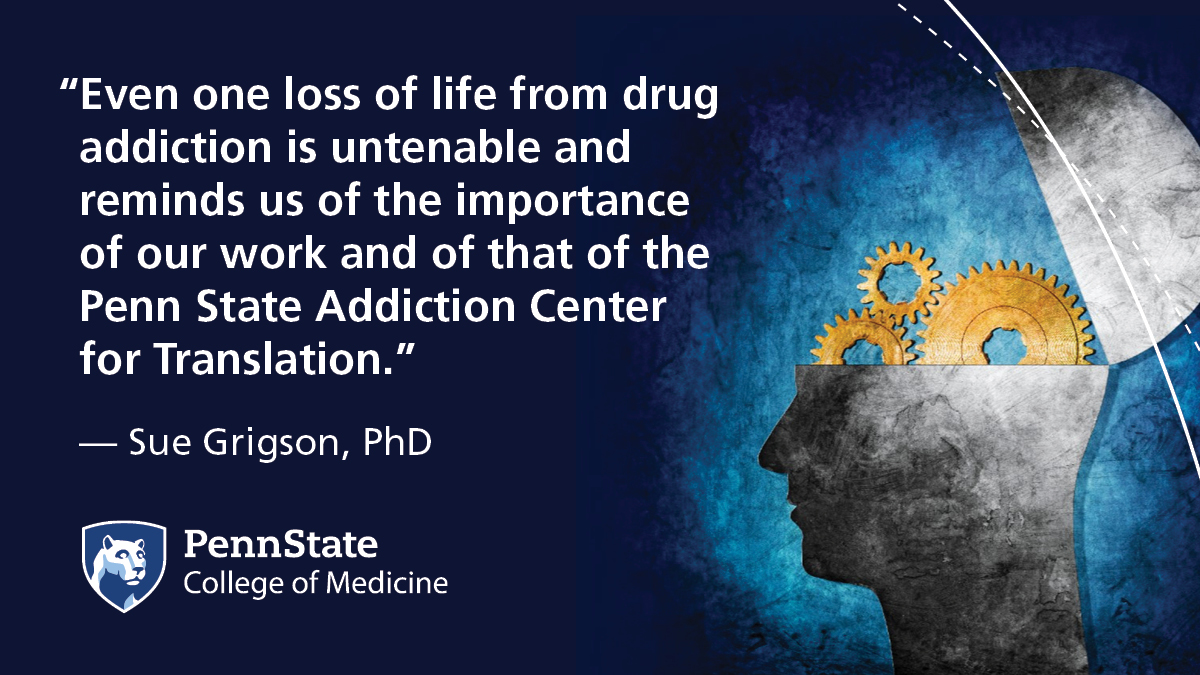Penn State College of Medicine Addiction Symposium tackles opioid abuse

Across the country, 100,000 people have died of drug overdoses this year―an increase of more than 30% over 2020. Experts believe the reason, in large part, is the pressure of COVID-19.
The spike in overdoses was one of the grim statistics experts shared during the 7th Annual Penn State College of Medicine Addiction Symposium on Dec. 6. The virtual event allowed researchers from across the Commonwealth and country to talk about their addiction-related studies and gave attendees an opportunity to consider potential solutions.
“Even one loss of life from drug addiction is untenable and reminds us of the importance of our work and of that of the Penn State Addiction Center for Translation,” said Patricia “Sue” Grigson, professor and chair of Penn State College of Medicine’s Department of Neural and Behavioral Sciences. “We need to understand the treatment strategies for addiction and explore novel interventions.”
Grigson, who studies the brain’s role and how it changes in individuals with a substance abuse disorder, also is director of Penn State Addiction Center for Translation. She said too many health care professionals stigmatize opioid abusers, which keeps them from seeking help.
Speakers included Dr. Judith Feinberg, a professor at West Virginia University, who discussed the devastation opioid addiction is having by highlighting the plight of West Virginia. She told the audience that 50% of children in one county are in foster care, and cases of HIV infection have risen to alarming levels.
Kanawha County, West Virginia, with a population of 48,000, had 35 cases of HIV in 2020 compared to New York City, with a population of more than 8 million, that had 36 cases, she explained.
“We must find out why people turn to opioids if we are going to solve this problem,” Feinberg said. “The impact on women and children is enormous.”
Dr. Jane Liebschutz, director of the Center for Research on Health Care at the University of Pittsburgh, said ways to curb drug addiction include creating a role for nurse care managers to work with people who misuse opioids and implementing further changes in opioid prescribing.
As speakers discussed possible solutions they pointed out that nearly 40 medications are on the market to help patients control high blood pressure, yet only three are available to curb addiction.
College of Medicine faculty also presented research on topics including whether using tobacco can be a contributing factor to opioid use; the reentry rates of former prisoners with opioid addictions; and findings from home methadone treatment during COVID-19.
If you're having trouble accessing this content, or would like it in another format, please email Penn State Health Marketing & Communications.
